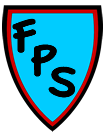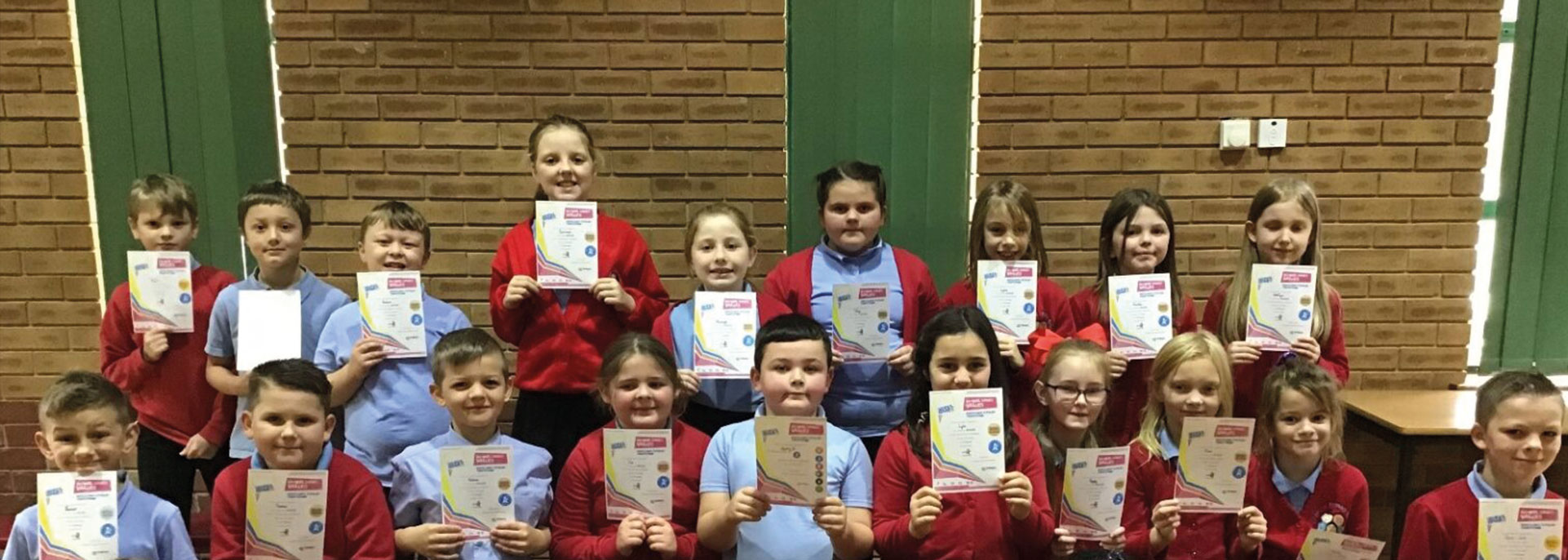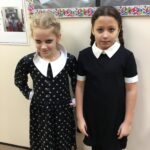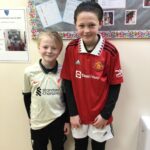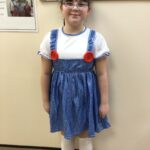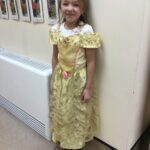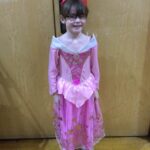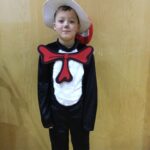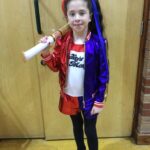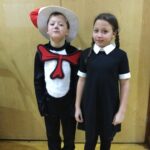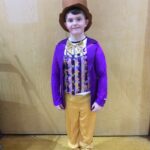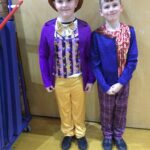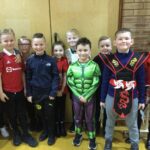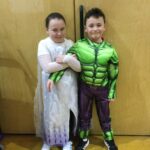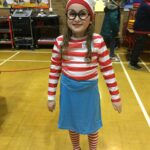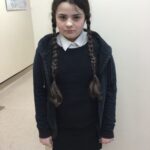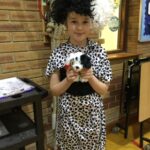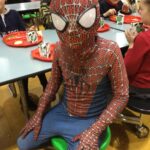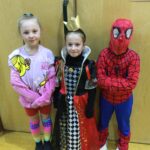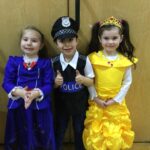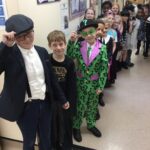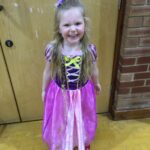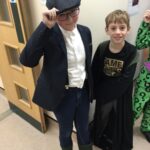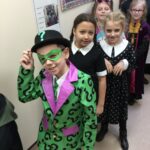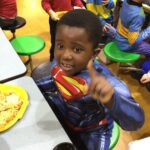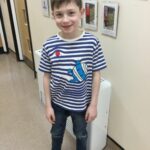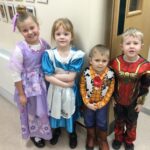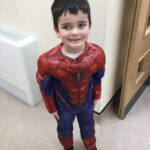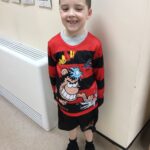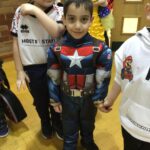English
English at Firthmoor Primary School
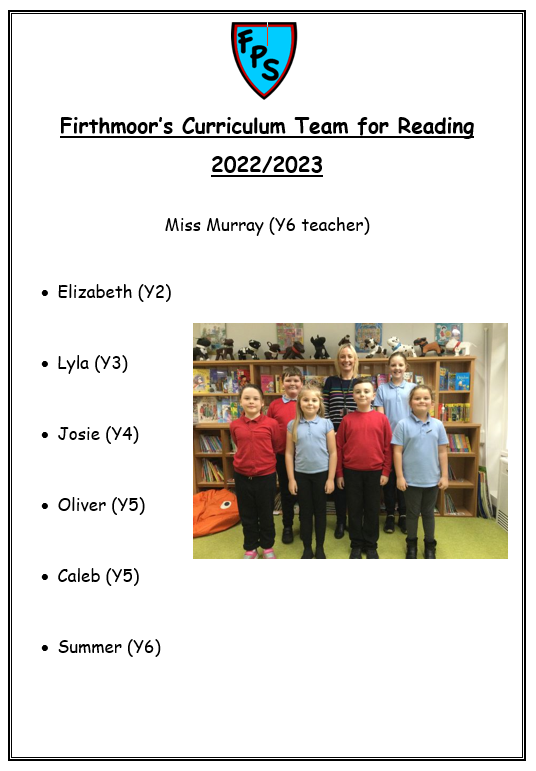
World Book Day 2023
Children have had a fantastic day today, as they marked World Book Day 2023 by dressing up and participating in age-related World Book Day activities in class. The EYFS/KS1 children even had a zoom call with author Andrew Swanson, about his book ‘The Caterpillar With Too Few Feet’.
We also had a special visit from Cllr Jonathan Dulston, who thought everyone looked terrific!
Our two reception classes and children in Year’s 1 & 2 came together to listen a children’s author, Andrew Swanson. The author introduced himself and read through the story, ‘The Centipede with Too Few Feet’. Following the story he invited the children to ask home some questions. The children were happy to speak about their favourite part of the story and discuss their favourite character. Most children said their favourite character was the mouse and they liked the ending because everyone was happy and the rat and the centipede were friends. After the story Raymond was so inspired he then created his own centipede! All children thoroughly enjoyed this experience.
You can purchase/view a preview of the book by following this link;
In Year 2, the children discovered all the colouring pencils had disappeared from their pots and a letter had been sent to them. The colouring pencils were tired and needed a rest so they had gone into hiding. They were unhappy that we use them all the time, leave them on the floor and sharpen when them when they don’t need it. They gave us their demands to stop leaving them on the floor, stop sharpening them when they don’t need them and to stop chewing them otherwise they would not come back!
So we decided to write the colouring pencils a letter saying sorry and to persuade them to return to our classroom.
Luckily, they read our lovely letters and returned after lunch. We think they might have got the idea from the story ‘The Day the Crayons Quit’ so we read the story. We enjoyed the story so much that we created our own little crayon boxes filled with crayons and speech bubbles about what they crayons might have said.
Below you will see some of the superb costumes the children wore. As you will understand, there were too many costumes to photograph everyone, but EVERY CHILD looked brilliant, whether they came as their favourite book character, favourite sports person or wore something red.
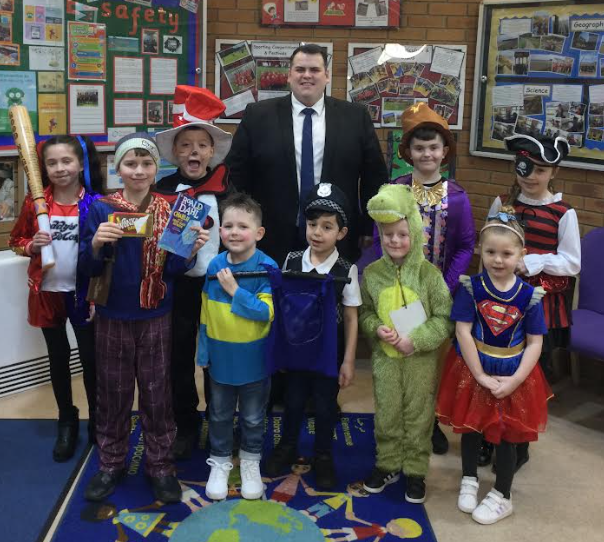
Our Reading Team were presented with a fantastic book ‘hamper’ from Morrison’s which contained 10 lovely children’s books.
We used the books as rewards for those children who completed exemplary work during World Book Day on Thursday.
The first picture shows the Reading Team with the book hamper, and the second shows some of the children who received the books as rewards for their World Book Day work.
Well done everyone, and thank you very much to all at Morrison’s for the wonderful donation of books!
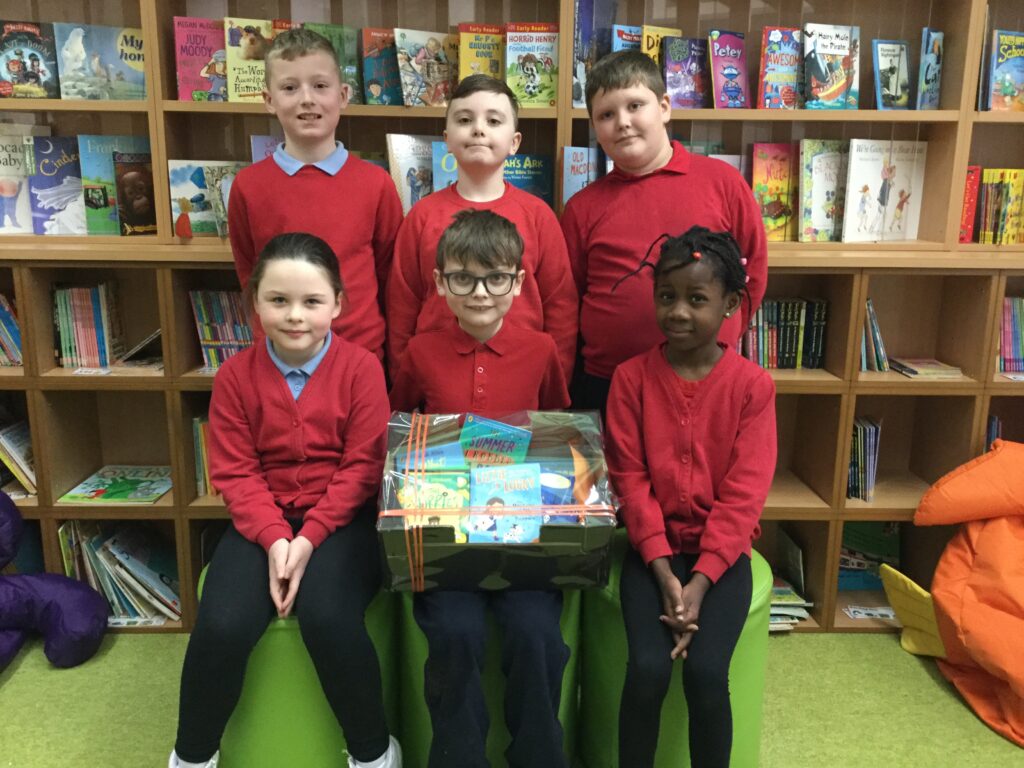
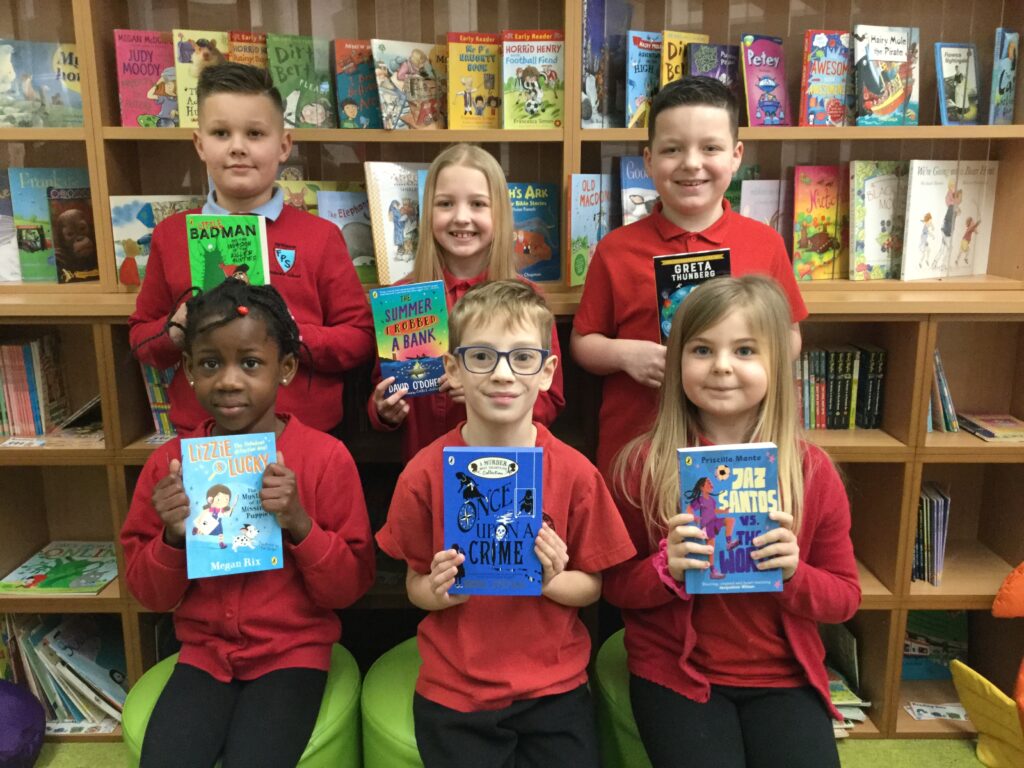


Writing
Pictured below is budding author Lee, with the stories he has recently written. We believe that if Lee keeps up with his writing, he could become as famous as Roald Dahl, J K Rowling or Julia Donaldson when he is older! The titles of his first stories include; The Boy Who Lost His Key, The Boy Who Couldn’t Drink Coke, The Boy Who Wasn’t Allowed To Eat Biscuits and Mike’s Balloon.
Over the course of a year, children are exposed to a wide variety of texts to support the many different genres of writing taught. These range from: stories, diaries, letters, chronological and non-chronological reports to poetry and play scripts.
During the planning stage, teachers model the writing process and children learn to make notes in preparation for independent work. All pupils are taught how to self-edit and improve their writing whilst older children are encouraged to participate in peer assessment. Dictionaries, thesauruses and classroom ‘Word Walls’ enhance spelling and develop vocabulary.
Marking ladders support the writing process, reminding children of their targets and promoting independence. Pink and green highlighters assist pupils in identifying positive aspects of a child’s work whilst providing editing tasks.
The development of a neat, legible handwriting style begins with a focus on developing children’s fine motor skills and accurate letter formation in the Early Years. All children are encouraged to take a pride in the presentation of their written work with the introduction of a joined handwriting style by the end of KS1.
Speaking & Listening
We view the development of good speaking and listening skills as a priority in ensuring that our pupils become effective communicators.
Speaking and listening is embedded in every lesson throughout every year group. Children are taught the characteristics of good speaking and listening in PSHE lessons, circle time activities and as a part of general classroom lessons where partner work allows children to share their ideas. Participation in drama lessons, assemblies and whole school productions provides further opportunities for our pupils to develop good speaking and listening skills in front of a wider audience
Spelling
Early spelling is linked with Letters and Sounds phonic teaching. From Y1, spelling lists and common exception words are displayed in each classroom. The ‘5-4-3-2-1’ minute approach is used to allow children to practise these spellings on a daily basis. Spelling patterns are also taught within Literacy lessons.
Children are encouraged to self-edit their work and correct any misspelt words.
The DfE National Curriculum Document sets out the framework for the National Curriculum at key stages 1 and 2 and states:
Writing down ideas fluently depends on effective transcription: that is, on spelling quickly and accurately through knowing the relationship between sounds and letters (phonics) and understanding the morphology (word structure) and orthography (spelling structure) of words
The word-lists for years 3 and 4 and years 5 and 6 are statutory. The lists are a mixture of words pupils frequently use in their writing and those which they often misspell. Some of the listed words may be thought of as quite challenging, but the 100 words in each list can easily be taught within the four years of key stage 2 alongside other words that teachers consider appropriate. Spelling lists are sent home with pupils on a weekly basis as part of their homework.
The links below detail the statutory spelling work for each year group(s)
